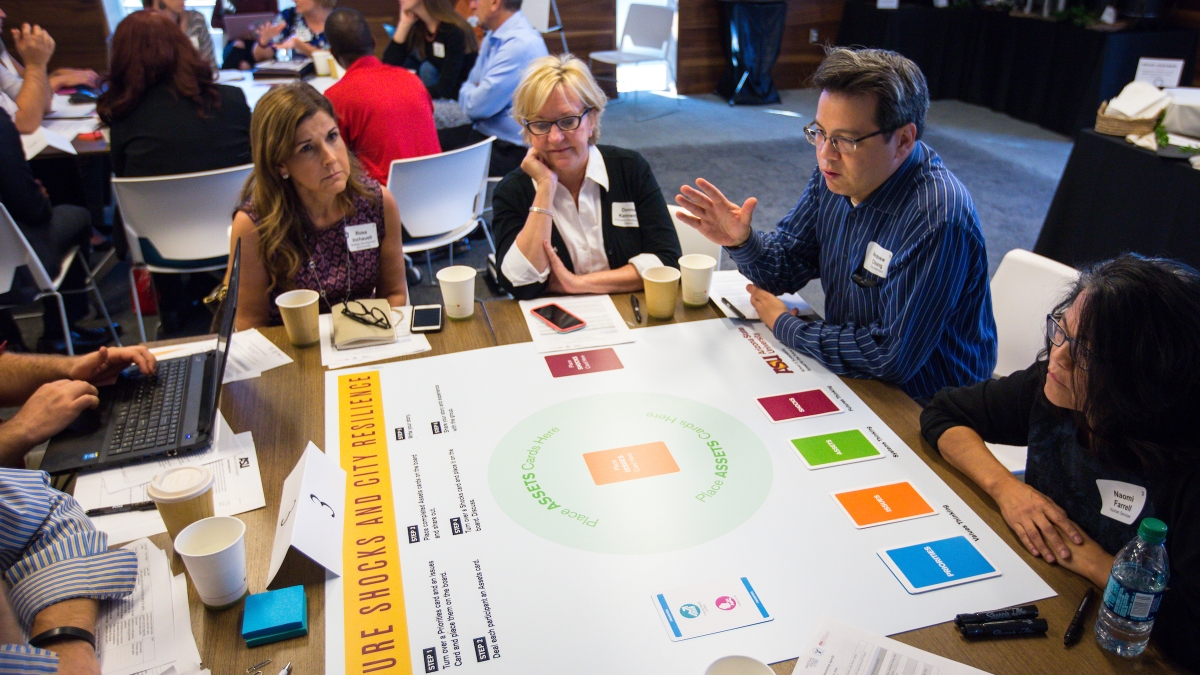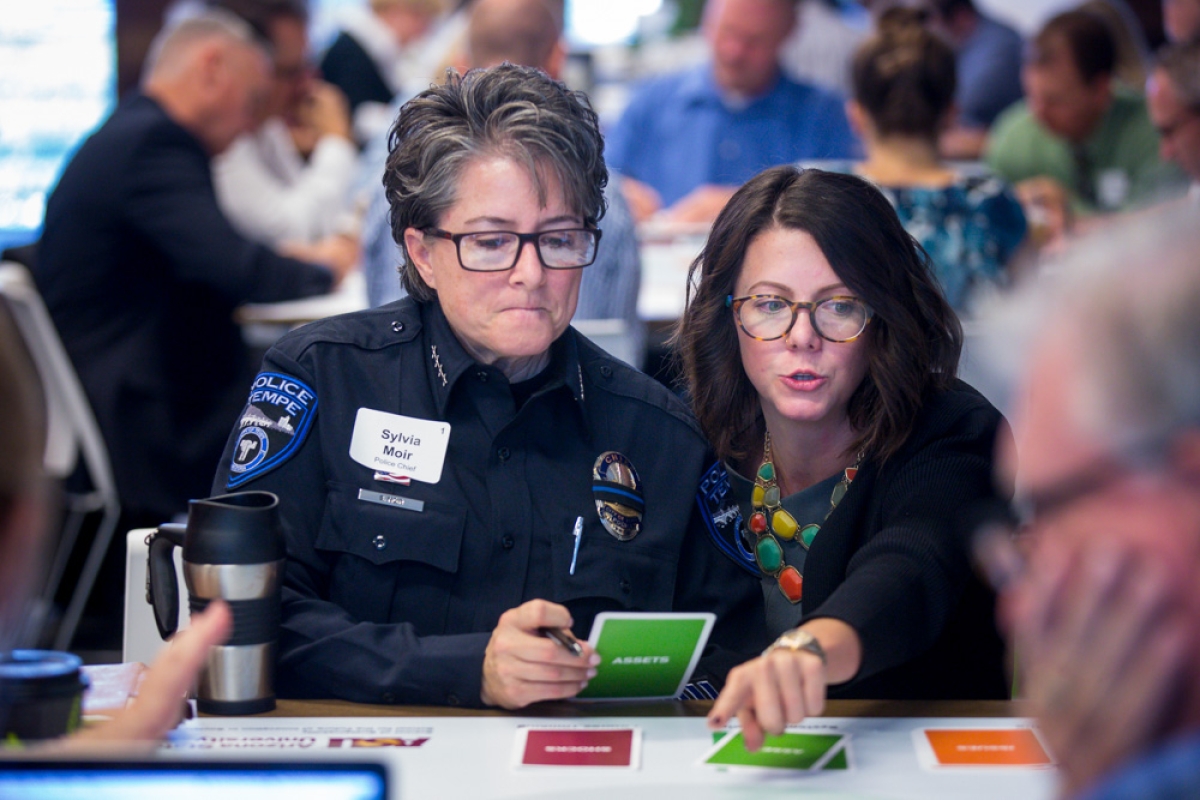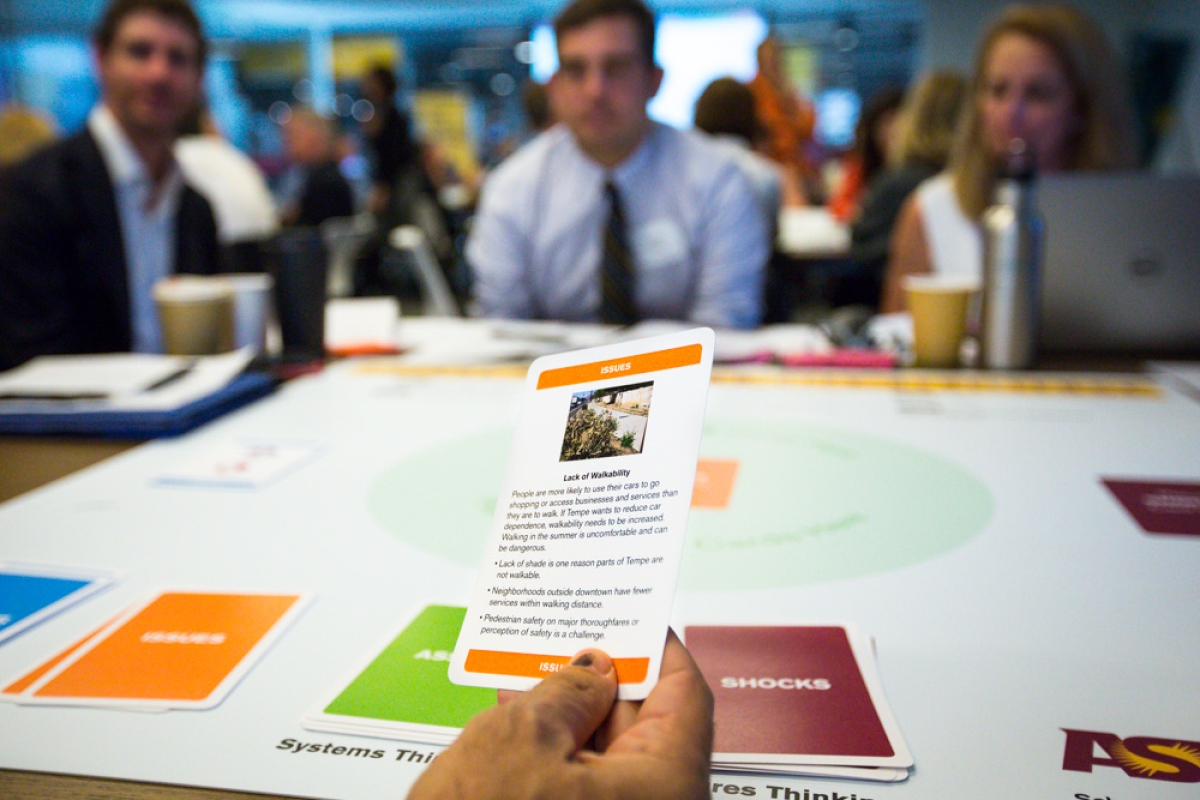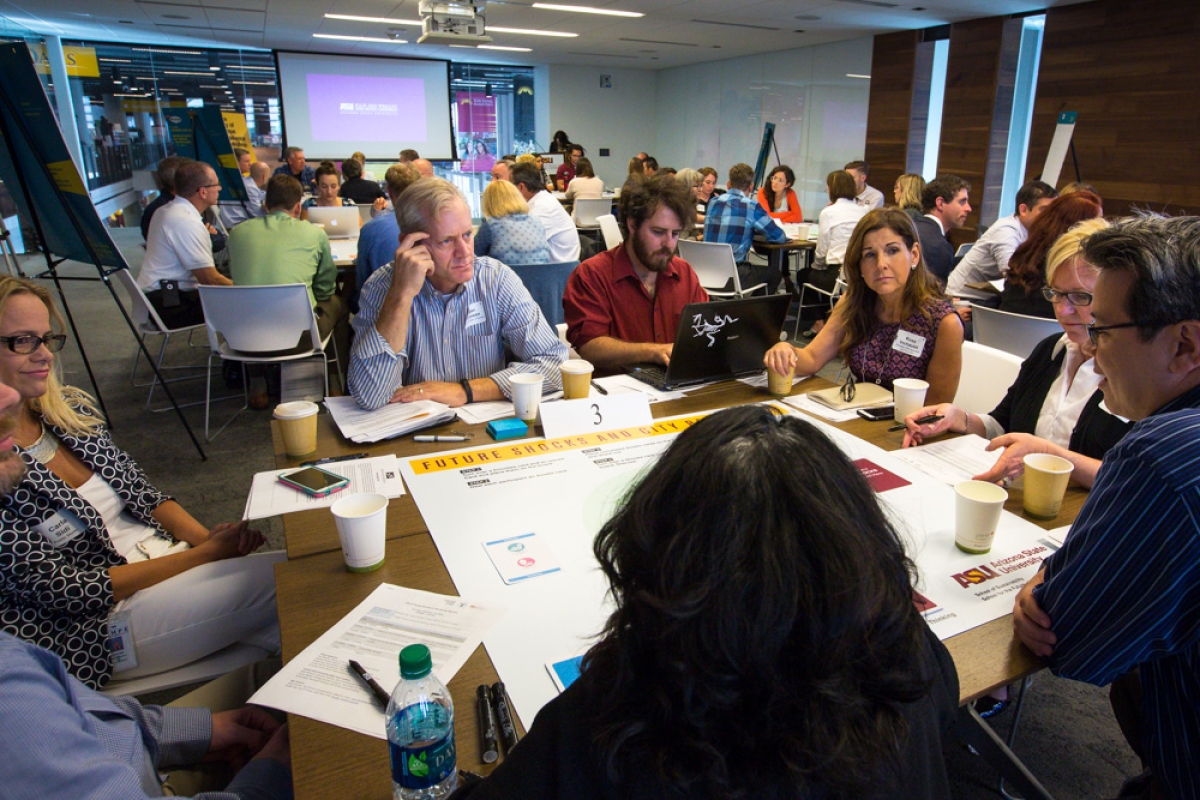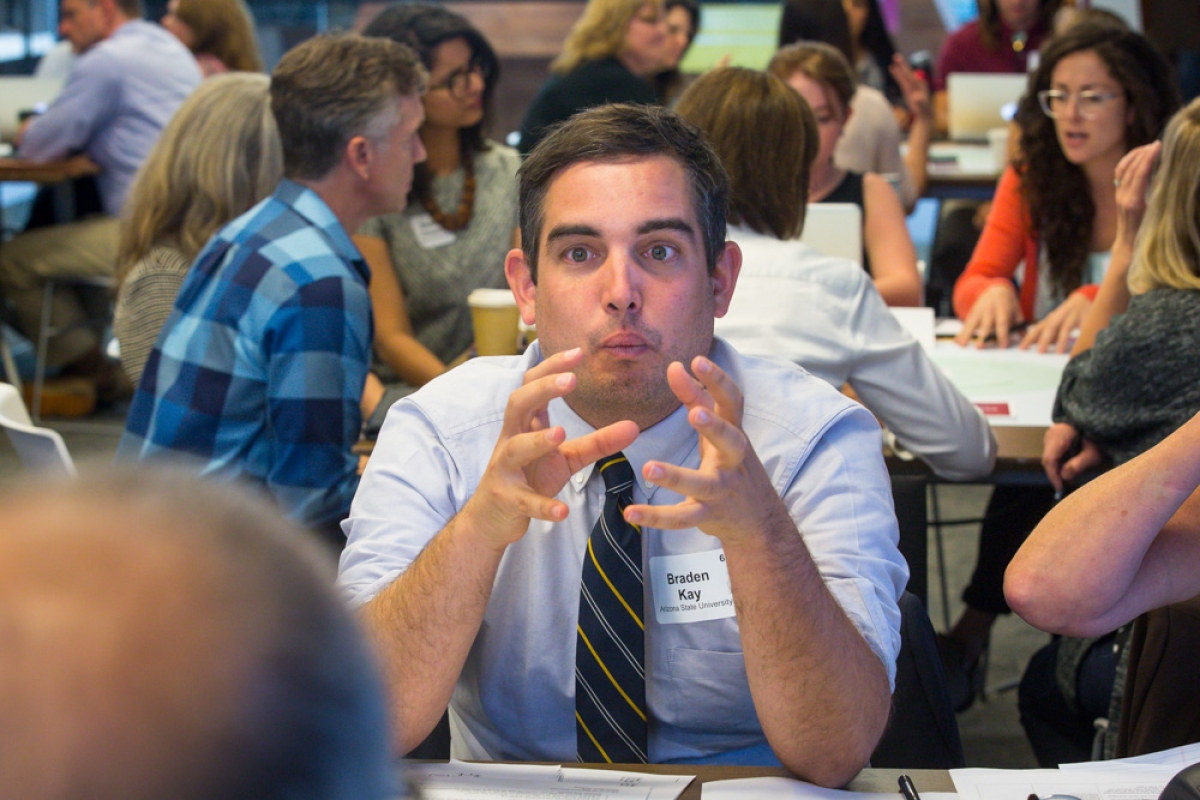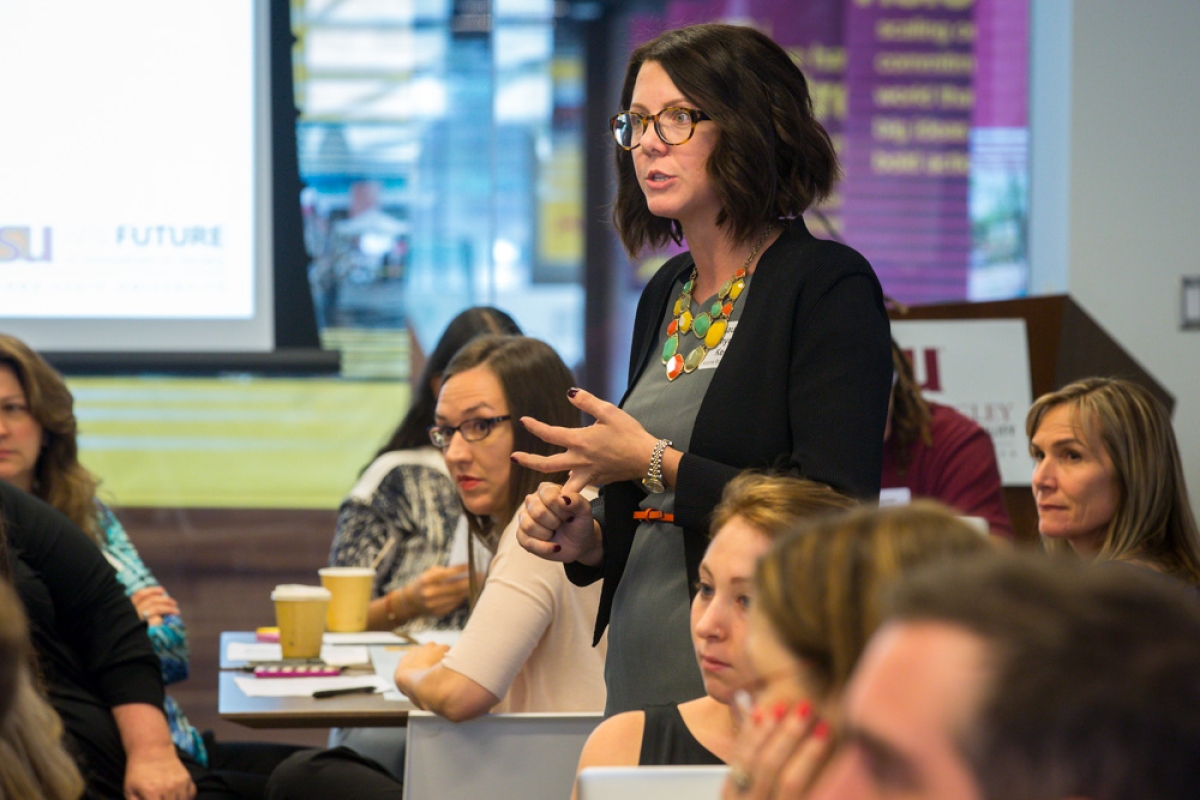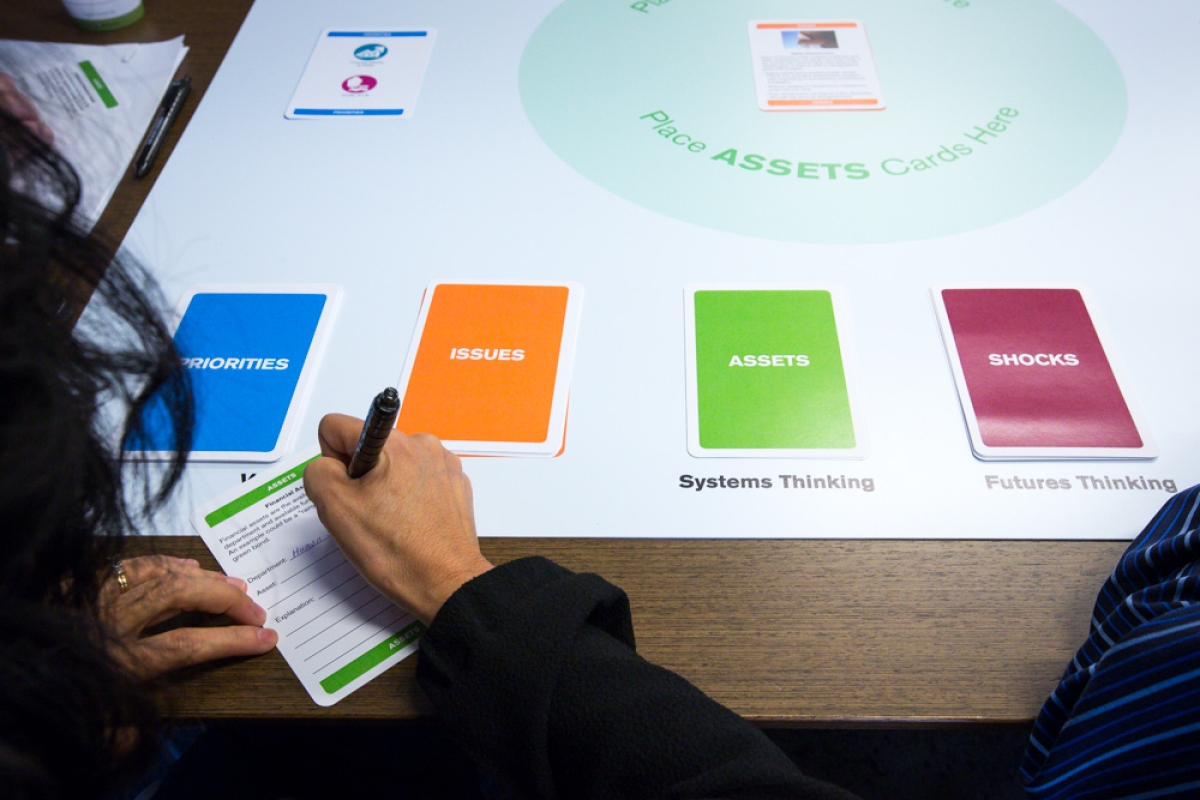During a flu pandemic, a homeless woman gets information from the city on how to stay healthy and takes it back to her community of homeless people. With new confidence, she becomes a conduit, providing data to city workers about the health of her friends. Eventually, she becomes such a resource that the city hires her to do outreach.
That is a fictional scenario, but it’s also a potential solution for a city that needs resources during and after a crisis.
The setup is part of a game that was played by about 50 people at the City of Tempe Resilience Workshop, sponsored by the city, the National League of Cities and the School of Sustainability at Arizona State University, allowing the decision-makers to take a creative approach to solving complex problems.
The game is called “Future Shocks and City Resilience” and was created by Lauren Withycombe Keeler, a visiting assistant professorShe also is a senior sustainability scientist in the Julie Ann Wrigley Global Institute of Sustainability and a founding member of the Center for the Study of the Future and the Risk Innovation Lab. in the School for the Future of Innovation in Society at ASU.
The participants, which included top city officials and ASU faculty, learned how to think about sustainability and resilience in the city, Withycombe Keeler said. In this case, sustainability is a concept much larger than recycling.
“It’s sustainability in terms of, how does a city create an environment that is livable for all different types of residents, and is equitable? And does it achieve that in a way that preserves and enhances the natural environment and allows the benefits to be available for future generations?” she said.
The participants divided into teams, and each got a set of cards with categories including assets, such as buildings and personnel; issues, such as lack of walkability and homelessness; priorities, such as financial stability and quality of life; and a shock, such as a terrorist attack or a pandemic.
Each team had to create a scenario that would use resources and solve problems in a collaborative way. In the pandemic scenario, a city volunteer program for homeless people was the catalyst that empowered the woman to reach out for information and eventually get a job.
“Games are really helpful at getting people to develop skills quickly,” Withycombe Keeler said. “We learn best when we’re having a good time.
“It’s based on a theory called material deliberation — the idea that by engaging with material in your hands, you build a greater investment in the learning,” said Withycombe Keeler, who created the game specifically for the workshopOther facilitators and speakers included Don Bessler, director of public works for the city of Tempe; Cooper Martin, program director for the Sustainable Cities Institute at the National League of Cities, and Arnim Wiek, associate professor in the School of Sustainability at ASU..
Braden Kay, the sustainability program manager for the city of Tempe, said that the collaboration in the game was important.
“My hope is that we now have a little bit more shared language and the opportunity to play in this fun way created some deeper relationships,” he said.
Top photo: Tempe City Manager Andrew Ching talk about his department at the City of Tempe Resilience Workshop lead by the School of Sustainability. ASU designed a large board game, called "Future Shocks and City Resilience," intended to help the executives think into the future and contemplate their own department's resilience and sustainability. This is being funded by a grant from the National League of Cities. Photo by Charlie Leight/ASU Now
More Environment and sustainability
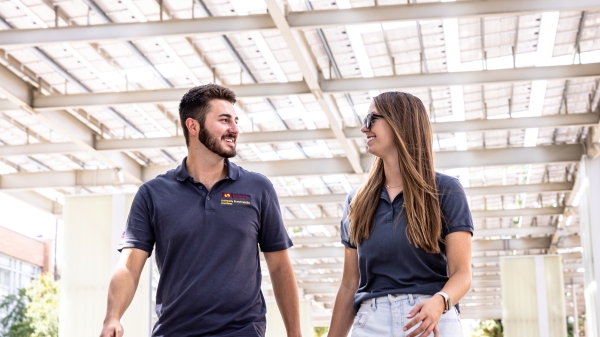
The future is green: Job demand translates to high employability for ASU sustainability grads
A 2023 report by Forbes on the state of green jobs confirmed what Arizona State University has been trumpeting for years: Sustainability will play a large part in the new economy.The report suggests…
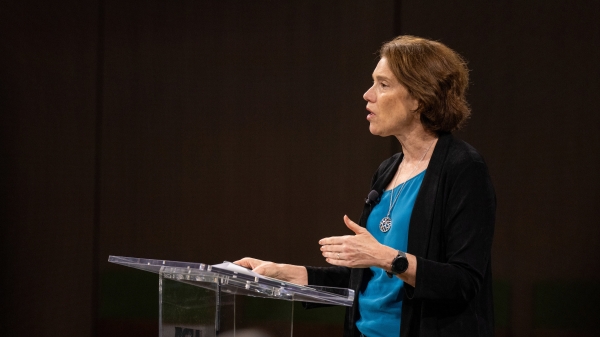
Researcher works on changing people's mindsets to fight climate change
Meaningful action to heal the climate requires a complete shift in the way people think and perceive each other, according to an expert on social transformation who spoke at Arizona State University…

NOAA, ASU offer workshop to bridge ocean exploration, education
Oceans are vital to sustaining life on Earth, as they produce over half of the oxygen we breathe and play a crucial role in regulating the planet's climate. They also support a diverse array of…
